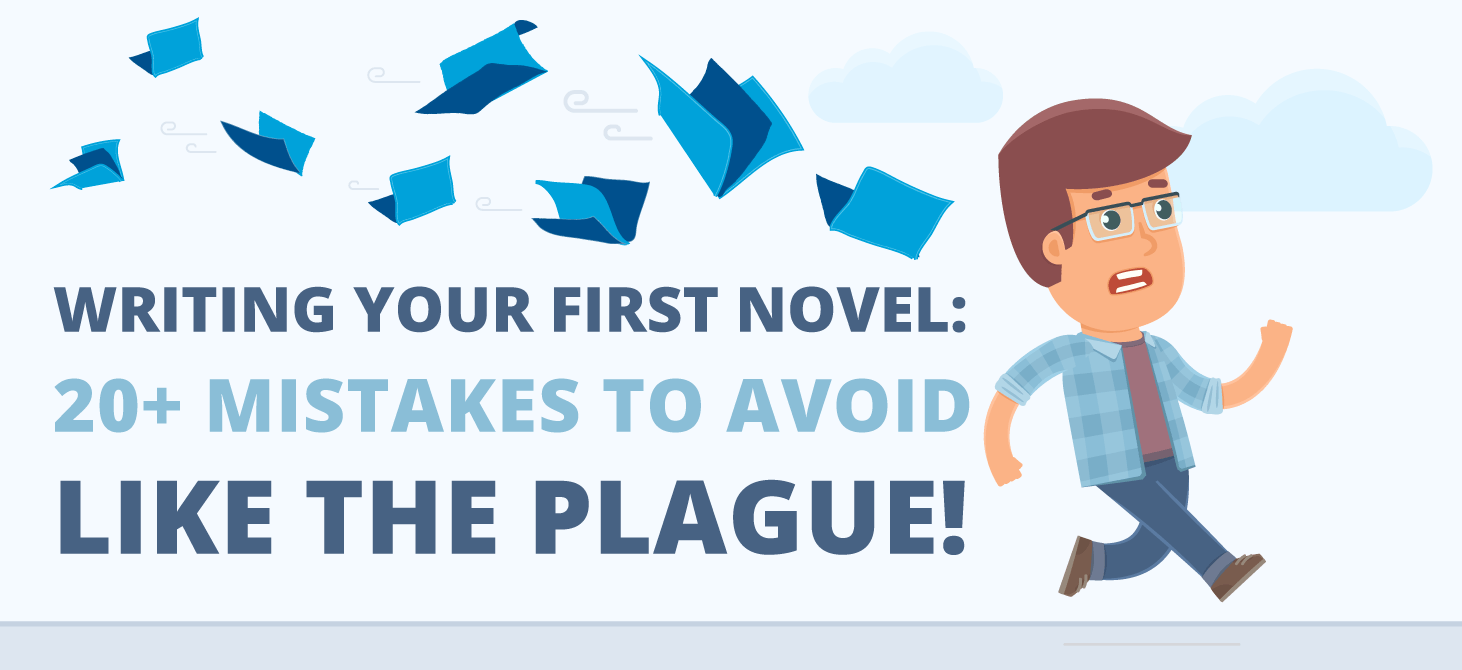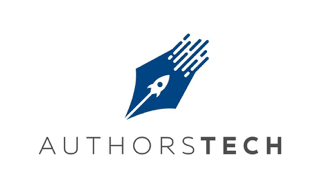
Ok, you've decided you've read enough about writing your first novel and you're finally going to undertake this monumental task: you'll finally cross "Writing your first Novel" off your bucket list.
You've got your workspace setup, Scrivener installed on your laptop, your keyboard is ready to go, you've beaten writer's block (for the day).
But this time, it's different.
You have learnt how to outline a fiction book, you know the process by now. But... putting theory to practice? The story you've kept in the back of your mind for so long... how on earth can you even begin to put it on paper (or screen)?
It's not easy. In fact, it's hard as hell.
But a lot of us have been there before. Some have given up half-way through; others have gone on to become best-selling authors with a whole library of titles to their name.
But you see, these authors have made mistakes. Tons of them. You see them topping the charts now, but once upon a time, they were just like you. Good thing is, they remember exactly what it felt like.
What it was like to being completely lost, not knowing what to do... and having to learn from their mistakes the hard way.
Wouldn't it be nice if they could give us some info, some pointers you can use, so that you avoid the biggest pitfalls, and get a head-start over everyone else?
Luckily for you, I reached out to some of the best indie novelists out there, asking one simple question:
What are the 3 mistakes new authors should avoid when writing their first novel?
Fortunately for you (and me), their responses were incredible. Some literally made me re-think some of my strategies.
But enough of that. Let's hear it directly from them!
"
J.F. Penn (Joanna Penn) - www.JFPenn.com
J.F.Penn is the Award-nominated, New York Times and USA Today bestselling author of the ARKANE thrillers and London Crime Thriller series as well as other dark fantasy stories. You can find all of her books here.
The first draft of your first novel will inevitably have some problems, but that's ok. Tell the story and then go back and fix it up later! Joanna Penn

"
J. THORN - https://theauthorcopilot.com
J. Thorn is a Top 100 Most Popular Author in Horror, Science Fiction, Action & Adventure and Fantasy (Amazon Author Rank). He has published over one million words and has sold more than 170,000 books worldwide. His latest post-apocalyptic science fiction novel co-written with Zach Bohannon has racked up more than 1 million page reads in under 100 days. Thorn became a certified Story Grid Editor in September of 2017 and offers his editing and coaching services to authors. You can find all of his books here.
Try to hook the reader in 7 seconds or less because that’s about how long they’ll take to decide on whether or not to purchase your book! - J. Thorn

"
RANDY INGERMANSON - ingermanson.com
Randy Ingermanson is the author of six award-winning novels and two best-selling books on how to write fiction. He has a PhD in physics and works as director of software engineering at a biotech company in San Diego. He likes using math to make the world a better place, which is how he developed his wildly popular Snowflake Method of designing a novel before you write it. Randy lives with his family in southern Washington State, and spends all his waking hours attending to the needs of two surly cats. You can find his books here.
Every amazing writer started out their career writing perfectly dreadful vile stinking crap. Every single one. Ask them! - Randy Ingermanson

"
ADAM CROFT - ADAMCROFT.NET
With more than a million books sold to date, Adam Croft is one of the most successful independently published authors in the world. Following his 2015 worldwide bestseller Her Last Tomorrow, during the summer of 2016, two of Adam’s books hit the USA Today bestseller list only weeks apart; in February 2017, Only The Truth became a worldwide bestseller, reaching storewide number 1 at both Amazon US and Amazon UK. You can find his books here.
If you're serious about writing, put it first. Make the time. Your efforts will be repaid. - Adam Croft
K. M. Weiland - helpingwritersbecomeauthors.com
K.M. Weiland lives in make-believe worlds, talks to imaginary friends, and survives primarily on chocolate truffles and espresso. She is the award-winning and internationally-published author of Outlining Your Novel, Structuring Your Novel, and Creating Character Arcs. She writes historical and speculative fiction from her home in western Nebraska and mentors authors on her award-winning website Helping Writers Become Authors. You can find all of her books here.
If your words never touch more than a single life, you can still count yourself a successful writer. - K. M. Weiland
kevin tumlinson - kevintumlinson.com
Kevin Tumlinson is a bestselling and award-winning thriller author, Host of the popular Wordslinger Podcast, and Director of Marketing for the global indie publishing resource, Draft2Digital. He is known as "The Voice of Indie Publishing," and every week helps thousands of will-be and established authors build and grow their publishing empires. You can learn more about Kevin and his work at https://kevintumlinson.com, find his books here and tune in to his weekly interview-format podcast at http://wordslingerpodcast.com.
Writers write. Authors have written. And success can only be defined by you. - Kevin Tumlinson
Johnny B. Truant - sterlingandstone.net
Johnny B. Truant is a bestselling author, professional storyteller, and co-owner of the Sterling and Stone Story Studio. You can find all of his books here.
Look at your first book as a means by which you can reach the point of writing the second: as much a learning experience as anything. - Johnny B. Truant




